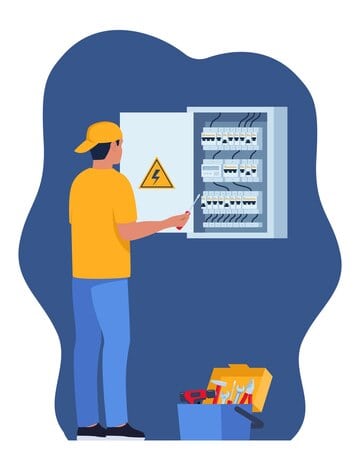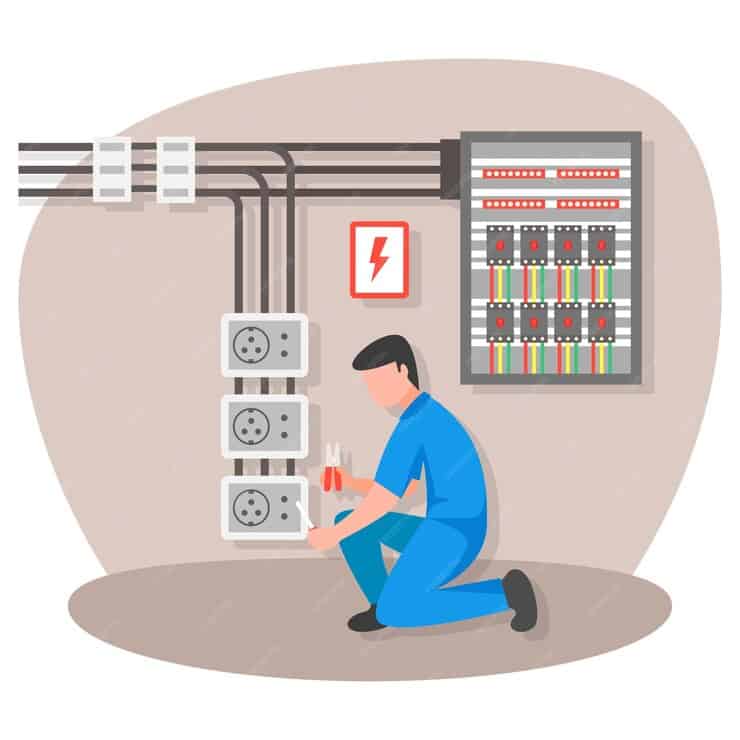Using a commercial property entails a lot of duties and power safety is the most important one. Electrical code infractions not only result in mass fines, but they may also cause property damage and even lead to death. Then, what are these violations and how can you avert them?

This article will present the most frequent electrical code violations, and the way they compromise the safety of commercial properties, and will further advise compliance with electrical safety regulations.
What Are Electrical Code Violations and How They Impact Commercial Properties?
The main breach of electrical code violations is an electrical system or equipment that is out of compliance with the standards that local, state or even national codes have set. Electrical codes are mainly used for the purpose of safety, so they are installed to safeguard the energy system against abuse and to avoid any disasters in both residential and commercial buildings. The electrical codes may, however, be a source of grave issues for the owners of commercial real estate:
- Legal penalties: Fines and legal consequences for non-compliance.
- Operational risks: Equipment malfunctions and electrical failures can disrupt your business operations.
- Safety hazards: Electrical fires and electrocution are real dangers that can arise from code violations.
Being proactive about electrical code compliance can save your property from these costly and dangerous consequences.
Common Causes of Electrical Code Violations
Understanding the root causes of electrical code violations is the first step in preventing them. Some common causes include:
- Unpermitted work: Electric work that does not have the needed licenses or is done by unlicensed contractors is regarded as a violation.
- Improper wiring: Systems of wiring that are not up to code and are not well designed are already outdated and still in use.
- Overloaded circuits: An electrical circuit can be damaged or fail due to an overload of electrical power.
- Lack of grounding: Grounding systems are the key elements that guarantee the electrical safety of a system.
Top Electrical Code Violations That Commercial Property Owners Should Be Aware Of
Certain violations are more common in commercial properties. As a proprietor, it is important to bring to mind the above-mentioned common electrical code violations, which are as follows:
- Improper or missing GFCI outlets: Water-affected areas such as bathrooms and kitchens must be equipped with GFCI (Ground Fault Circuit Interrupter) outlets.
- Non-compliant electrical panels: There are a lot of old buildings that have power panels that are not updated or even they are too small to meet the code requirements.
- Inadequate circuit breakers: Circuit breakers protect us from the dreaded risks of electrical fires. Old or defective circuit breakers cause a lot of fires, and this is a common cause of violations.
- Improper installation of wiring: Poorly done or exposed wiring can lead to many dangers, particularly in populated places.
- Overloaded circuits: It is common for companies to add electrical appliances and machinery to their operations while leaving the original circuits unchanged, which sometimes results in non-compliance.
How to Avoid Electrical Code Violations?

On the brighter side, quite the majority of electrical code violations are avoidable through careful planning and respecting all details. Here are some ways to avoid them:
- Work with licensed commercial electrical contractors: Fuse Service is the best-certified electrician to hire for such electrical works as they guarantee electrical code compliance with local codes and regulations.
- Regular inspections: Routines should be set up to check for violations so that they do not turn into bigger problems.
- Upgrade outdated systems: Should your real estate have an outdated electrical system, upgrading it to current standards will be a great way to satisfy your electricity consumption.
- Obtain permits for all electrical work: This is a crucial step to ensure that the project meets the required standards and codes.
What to Do If You Suspect a Code Violation
What if you suspect that your commercial property has an electrical code violation? Follow these steps:
- Schedule an inspection: Call a professional electrician who has a license to visit your residence and find the violations. The service can carry out a detailed inspection to find out what’s wrong.
- Make necessary repairs: If a violation is detected, fix it right away. Procrastination on repairs can lead to heightened penalties and hazards.
- Consult with your contractor: Inquire your contractor whether or not they will obtain the required permits and implement the necessary upgrades to ensure your property complies with regulations.
Taking swift action can prevent further complications and keep your property safe.
Electrical Code Compliance and Its Role in Protecting Commercial Property
Electrical code compliance provides protection, fuel conservation, and durability to the electric system of the building. Electrical safety regulations comply with no regulations, and relaxation is a safety precaution not only against fines and penalties but also against life-threatening electrical hazards, fires, and other dangers. Protecting your finances and helping save lives through electrical system compliance are requirements of the electrical system.
In Conclusion
Dealing with electrical code violations may be a tough task, but if you have the proper training and expert assistance, you will be able to deal with it easily. By learning about the commonest causes of violations and how to avoid them, you can steer clear of commercial property from jeopardizing people's safety and legal problems. Never postpone until an inspector points out a problem to you: do it beforehand by organizing regular inspections, employing licensed electricians such as those at Fuse Service, and being aware of electrical safety regulations.
Ensuring electrical code compliance is an ongoing process, but it’s one that pays off in the long run by keeping your property safe, functional, and compliant with all legal standards.





Leave a Reply